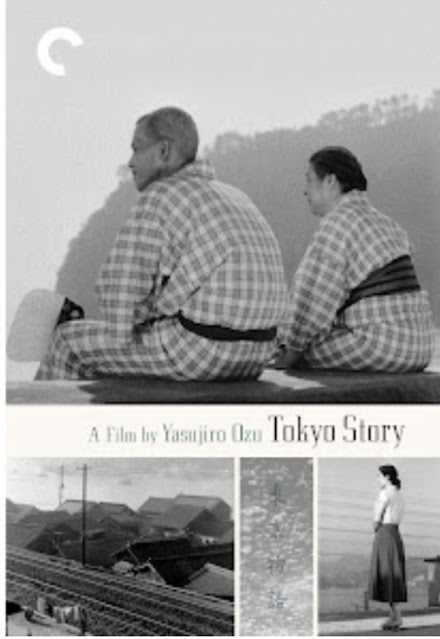Tokyo Story is about an aging couple who travel to Tokyo to visit their grown children. The film was a critical and commercial success in Japan, but it did not receive international recognition until the 1970s. It is now considered one of the greatest films ever made.
The film tells the story of Shukishi and Tomi Hirayama, an elderly couple who travel from their small seaside village to Tokyo to visit their grown children. Their elder son, Koichi, is a doctor who is busy with his work and his young family. Their daughter, Shige, is a hairdresser who is also busy with her work and her husband. The only child who has time for them is their daughter-in-law, Noriko, who is the widow of their younger son who was killed in the war.
The Hirayamas are disappointed by the lack of attention they receive from their children. Koichi and Shige are too busy with their own lives to spend much time with them. Noriko tries to be a good hostess, but she is also busy with her own work. The Hirayamas feel like they are a burden to their children and they start to feel lonely and isolated.
Tokyo Story is a beautifully made film that is both moving and thought-provoking. It is a film about the importance of family and the challenges of aging. It is also a film about the changing values of Japanese society in the post-war era.
Here are some of the things that make Tokyo Story a great film:
The acting is superb. Chishū Ryū and Chieko Higashiyama give heartbreaking performances as the elderly Hirayamas. Setsuko Hara is also excellent as Noriko.
The direction is masterful. Ozu uses his trademark low-angle shots and long takes to create a sense of intimacy and realism.
The writing is sharp and insightful. The film explores complex themes of family, aging, and loss with honesty and compassion.
The cinematography is beautiful. The film is beautifully shot in black and white and it captures the sights and sounds of post-war Tokyo.
Tokyo Story is a must-see for any fan of cinema. It is a film that will stay with you long after you have seen it.
The film is set in 1953 post-war Japan, a few years after the new Civil Code of 1948 stimulated the country's rapid re-growth and embraced Western capitalist ideals while simultaneously destroying older traditions such as the Japanese family and its values. Ozu was very close to his own mother, living with her as a surrogate wife and never marrying. Ozu called Tokyo Story "the film that tends most strongly to melodrama." It is considered a Shomin-geki film for its depiction of working-class people.
"Ozu was born in Tokyo in 1903. He began his career as a film assistant in the 1920s and directed his first film in 1927. He made over 50 films over the course of his career, including such classics as Tokyo Story (1953), Late Spring (1949), and An Autumn Afternoon (1962).
Ozu's films are often praised for their simplicity and understated beauty. He was a master of capturing the small moments of everyday life, and his films often have a wistful, nostalgic quality. Ozu was also a pioneer in the use of sound in film, and his films often feature long, uninterrupted takes that allow the viewer to immerse themselves in the world of the film" Bard
I intend to watch and post on all of his films on YouTube that have English Subtitles
Mel ulm
Tokyo Story is Available on YouTube with English Subtitles





No comments:
Post a Comment